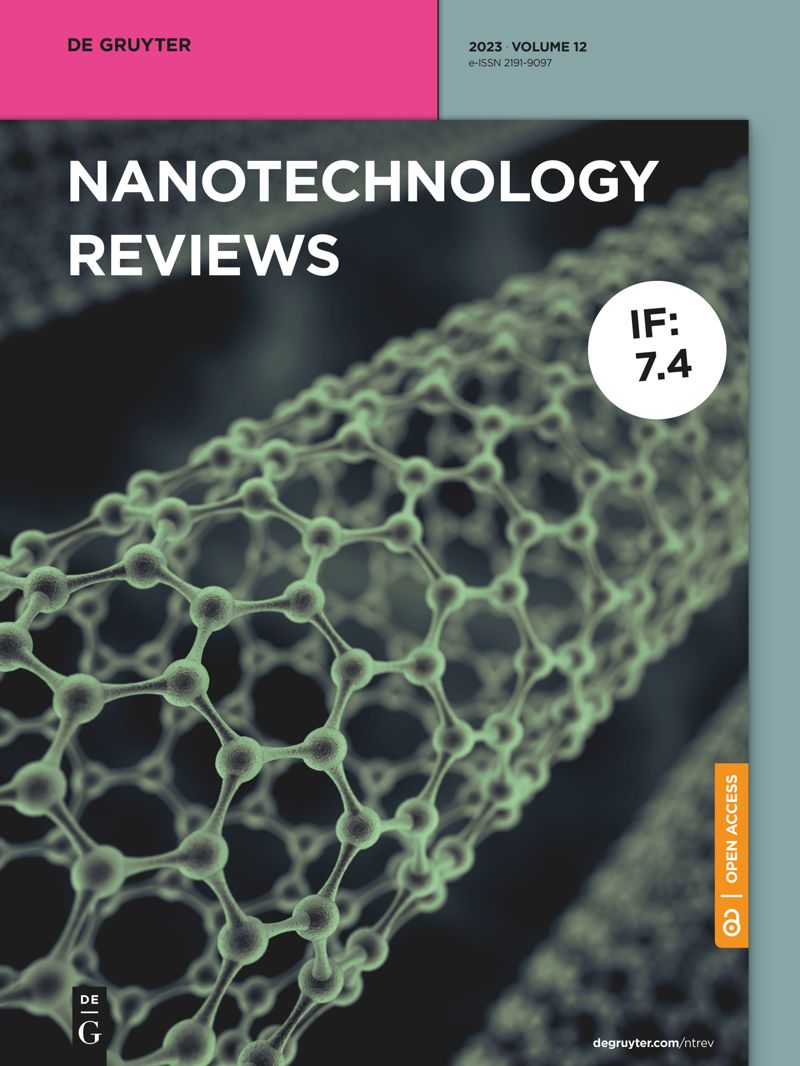Induction of apoptosis and autophagy via regulation of AKT and JNK mitogen-activated protein kinase pathways in breast cancer cell lines exposed to gold nanoparticles loaded with TNF-α and combined with doxorubicin
IF 6.1
3区 材料科学
Q1 CHEMISTRY, MULTIDISCIPLINARY
引用次数: 0
Abstract
Abstract Gold nanoparticles (GNPs) tagged with peptides are pioneers in bioengineered cancer therapy. The aim of the current work was to elucidate the potential anticancer interactions between doxorubicin and GNPs loaded with tumor necrosis factor-alpha (TNF-α). To investigate whether GNPs loaded with TNF and doxorubicin could stimulate autophagy and apoptosis in breast cancer cells. Two human breast cancer cell lines, MCF-7 and AMJ-13, as well as different apoptotic and autophagy markers, were used. In both cell types, treatment with TNF-loaded GNPs in conjunction with doxorubicin increased the production of apoptotic proteins including Bad, caspase-3, caspase-7, and p53 with upregulation of the LC3-II and Beclin1 proteins. In addition, the findings showed that the mitogen-activated protein kinase signaling pathway was dramatically affected by the GNPs loaded with TNF-α and combined with doxorubicin. This had the effect of decreasing p-AKT while simultaneously increasing p-JNK1/2. The findings demonstrated that GNPs loaded with TNF-α and combined with doxorubicin can induce both autophagy and apoptosis in breast cancer cells. These results suggest that TNF- and doxorubicin-loaded GNPs provide a therapeutic option as a nanomedicine to inhibit the proliferation of breast cancer.通过调控AKT和JNK丝裂原激活的蛋白激酶途径诱导乳腺癌细胞系凋亡和自噬暴露于负载TNF-α的金纳米颗粒并联合阿霉素
肽标记的金纳米颗粒(GNPs)是生物工程癌症治疗的先驱。本研究的目的是阐明阿霉素与装载肿瘤坏死因子α (TNF-α)的GNPs之间潜在的抗癌相互作用。探讨负载TNF和阿霉素的GNPs是否能刺激乳腺癌细胞的自噬和凋亡。使用两种人乳腺癌细胞系MCF-7和AMJ-13,以及不同的凋亡和自噬标志物。在这两种细胞类型中,用负载tnf的GNPs联合阿霉素处理增加了凋亡蛋白的产生,包括Bad、caspase-3、caspase-7和p53,并上调LC3-II和Beclin1蛋白。此外,研究结果表明,装载TNF-α并联合阿霉素的GNPs显著影响了丝裂原激活的蛋白激酶信号通路。这具有降低p-AKT同时增加p-JNK1/2的作用。结果表明,GNPs加载TNF-α并联合阿霉素可诱导乳腺癌细胞自噬和凋亡。这些结果表明,TNF-和阿霉素负载GNPs作为纳米药物提供了一种治疗选择,以抑制乳腺癌的增殖。
本文章由计算机程序翻译,如有差异,请以英文原文为准。
求助全文
约1分钟内获得全文
求助全文
来源期刊

Nanotechnology Reviews
CHEMISTRY, MULTIDISCIPLINARY-NANOSCIENCE & NANOTECHNOLOGY
CiteScore
11.40
自引率
13.50%
发文量
137
审稿时长
7 weeks
期刊介绍:
The bimonthly journal Nanotechnology Reviews provides a platform for scientists and engineers of all involved disciplines to exchange important recent research on fundamental as well as applied aspects. While expert reviews provide a state of the art assessment on a specific topic, research highlight contributions present most recent and novel findings.
In addition to technical contributions, Nanotechnology Reviews publishes articles on implications of nanotechnology for society, environment, education, intellectual property, industry, and politics.
 求助内容:
求助内容: 应助结果提醒方式:
应助结果提醒方式:


